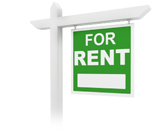Being a landlord involves more than just picking up the monthly rent. Get the key practical and legal information you need in our one-stop guide.
Are you interested to get insurance for you..
Here is some tips which helps you to be a insure landlord.
Who do I inform if I want to let a property?
First things first, if you have a
mortgage on the property you will have to inform your mortgage provider, and you might want to consider switching to a specialist landlord's mortgage to better fit your needs.
Letting a property should be, in theory, quite a straightforward process, but there are measures you can take to ensure you're covered if things go wrong
If you're planning on letting a flat, some leases will require you gain permission from the freeholder, or will prohibit some types of leases entirely.
If your property will form a 'House in Multiple Occupation' (HMO), you may need to apply for a HMO licence from your local council (a HMO is generally a property with 'common areas' such as a living room and kitchen, and is home to more than one household).
You will also have to inform HM Revenue & Customs (HMRC) so that they can take into account your extra income.
If this amounts to more than £2,500 a year you'll have to complete a self-assessment tax return (if it's less you'll need to obtain and fill in a P180 form).
However, there are a number of helpful tax deductions available which
Gov.UK† lists comprehensively.
What do I actually have to do?
When you decide to let a property you can choose to go it alone, which will mean managing all aspects of the property and tenancies yourself.
Alternatively, you can employ a
letting agent to take care of it for you, which will mean fees that can eat into your rental income.

In either case, you as the landlord will be expected to provide (or pay for the provision of, if an agency is managing your property) the following:
- Gas safety certificate: If you provide any gas appliances in the property then you must ensure that annual gas safety checks are carried out by an engineer on the Gas Safety Register (which has replaced Corgi), and that the tenant has a copy of the inspection certificate
- Electrical inspections: If your property is a HMO of any kind (requiring a licence or otherwise) you must have electrical safety checks carried out every five years. If you provide any electrical appliances with the property you must ensure they are safe when the tenancy commences
- Fire safety: You must ensure your property complies with the Chartered Institute of Environmental Health's comprehensive fire safety regulations†
- Energy Performance Certificates: An Energy Performance Certificate (EPC) provides information on your property's energy use and typical energy costs. If your property doesn't have one you'll have to find an accredited assessor† who can produce one for you. Failure to provide this document can result in a fine
- Proper and timely maintenance and repairs to the exterior or structure of the property, plus integral elements such as pipes, radiators, boilers and toilets/showers in the event of a breakdown
- Secure deposit protection: Once a new tenancy agreement is signed, you must put the tenant's deposit into a protection scheme and, within 30 days, notify the tenants with details of where their money is being held. Our guide to tenancy deposit protection schemes gives more information on deposits and tenancy issues

Taking precautions
Letting a property should be, in theory, quite a straightforward process, but there are measures you can take to ensure you're covered if things go wrong.
Firstly, it's absolutely vital that you have the right
landlord insurance. Standard buildings and contents cover won't cut it on a let property - you need to make sure you have a specific landlord's policy.
Secondly, you can help to avoid disputes with tenants by undertaking an inventory at the beginning of each new lease.
Recording the condition of the property and any included furnishings at the outset means that both parties are protected should a dispute arise.
Similarly, be sure to undertake regular inspections of the property, particularly before a new tenancy and at the end of an existing one.
The Landlord's Energy Saving Allowance provides tax breaks for landlords looking to increase the energy efficiency of their properties
You might also consider purchasing maintenance packages from your utilities providers.
This means that in the event of an emergency - such as a broken boiler or burst pipe - your tenant can contact help directly without having to go through your letting agent or creating additional concerns for you.
What's the Landlord's Energy Saving Allowance?
The
Landlord's Energy Saving Allowance† provides tax breaks for landlords looking to increase the energy efficiency of their properties (which is good for the environment, and may help to attract tenants looking for lower energy costs).
The scheme could allow you to reduce your tax bill by up to £1,500 a year by claiming for items such as cavity wall and loft insulation, draught proofing and floor insulation.









0 comments:
Post a Comment